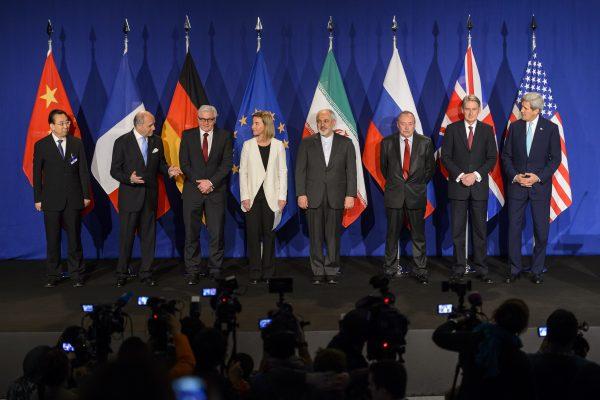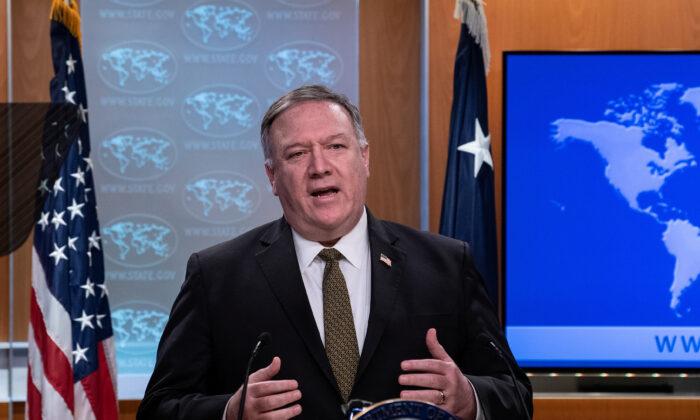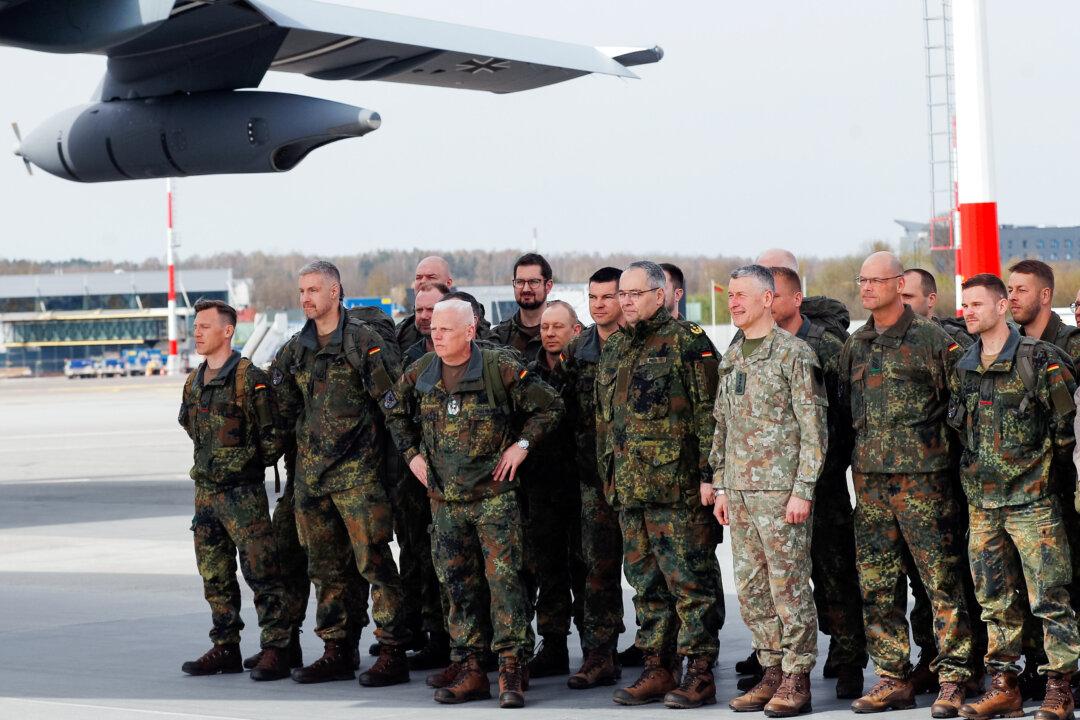The United States will not allow Iran to purchase conventional arms after a U.N. prohibition expires in October, U.S. Secretary of State Mike Pompeo said on April 29.
“We will work with the U.N. Security Council to extend that prohibition on those arms sales. And then in the event we can’t get anyone else to act, the United States is evaluating every possibility about how we might do that,” Pompeo said at a press briefing.
The embargo on conventional arms sale was imposed on Iran by the U.N. Security Council as a part of the Iran nuclear deal signed in 2015 in a separate resolution, and is due to expire on Oct. 23 if no action is taken, Pompeo said. This will allow China, Russia, and other countries to sell conventional weapons to Iran, he added.
Pompeo added that the United States was urging the E3 states of France, Germany, and the UK as signatories of the Iran nuclear deal to take action to prevent the Ayatollah regime from obtaining conventional weapons, “which is within their capacity to do,” Pompeo said at the press briefing on April 29.
A U.S.-drafted resolution to extend the embargo has been given to the three countries, a U.S. official confirmed. But U.N. diplomats said it has not been shared with the remaining 11 U.N. Security Council members, according to Reuters.

In 2018, the Trump administration withdrew the United States unilaterally from the Iran deal, also known as the Joint Comprehensive Plan of Action (JCPOA), saying that it had failed to prevent Iran from pursuing nuclear weapons and allowed Iran to support terrorist activities.
Several European diplomats said that Washington may not be able to spark a sanctions snapback because it has already pulled out of the deal but Pompeo disagreed.
The United States has “the right to invoke snapback in a way that will prevent this expiration of the arms sales” under the provisions of the U.N. Security Council resolution, which re-imposed sanctions on conventional arms sale until October, he told Fox News on April 30.
“President Trump is committed to using every tool we have to prevent the Iranians from getting more conventional arms. I am convinced that we have the capacity to do that,” Pompeo said, adding that the United States has no intention of making another deal.
The Iran nuclear deal was signed by the five permanent members of the United Nations Security Council (China, France, Russia, United Kingdom, United States), Germany, the European Union (EU), and Iran. Its purpose was to prevent Iran from acquiring nuclear weapons in exchange for lifting economic sanctions.
Upon withdrawal from the deal, the Trump administration imposed sanctions on Iran aimed at cutting off the “revenues the [Iranian] regime uses to bankroll terrorist groups, foment global instability, fund nuclear and ballistic missile programs, and enrich its leaders,” the White House said at the time.
The E3 countries and the EU continued to support the JCPOA after the U.S. withdrawal, and have urged Iran to comply with the deal.
An Iranian government’s spokesman made the announcement on Jan. 5 that Iran would no longer abide by the limits of the 2015 nuclear deal intended to curb its burgeoning nuclear program.
Reuters contributed to this report.






Friends Read Free